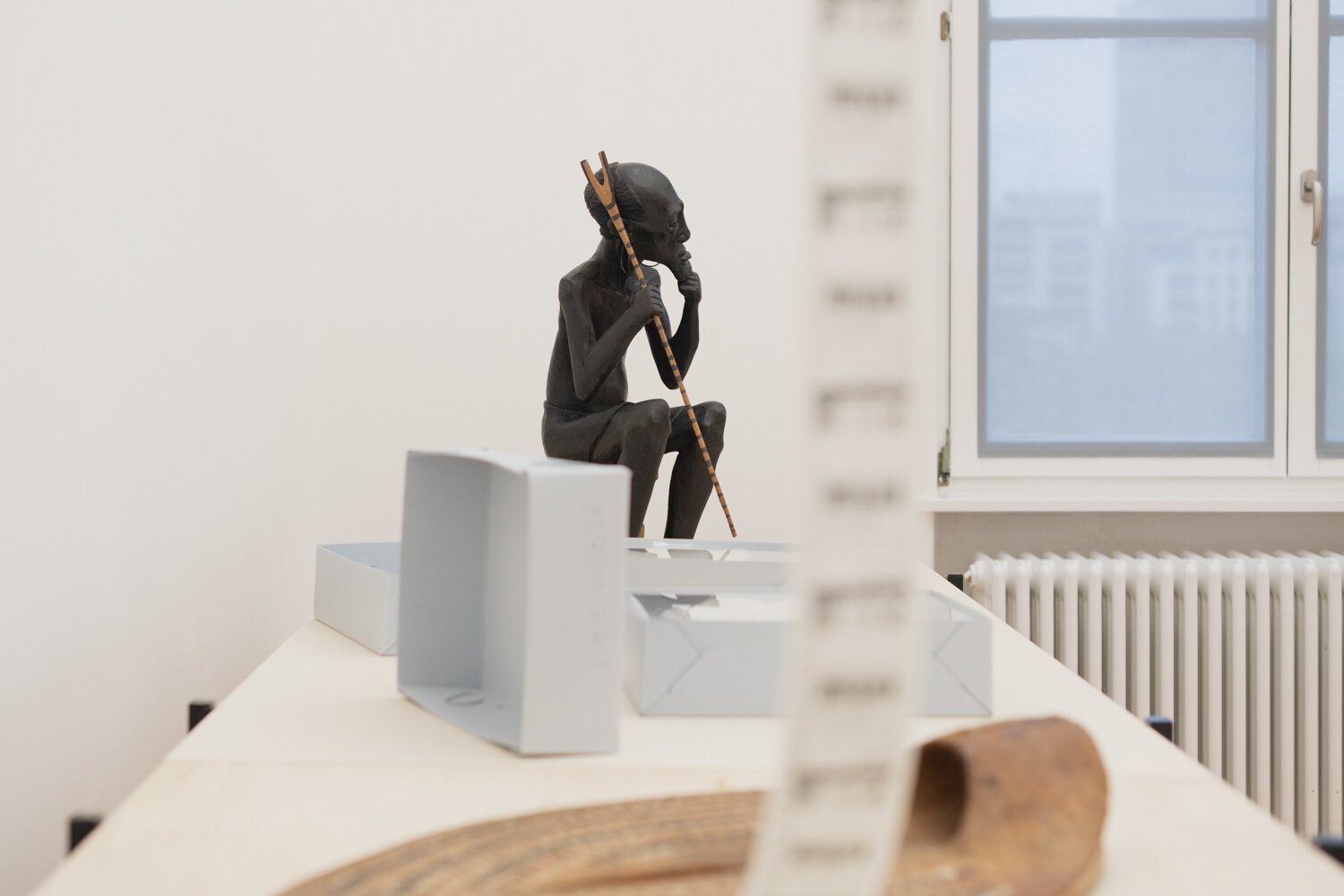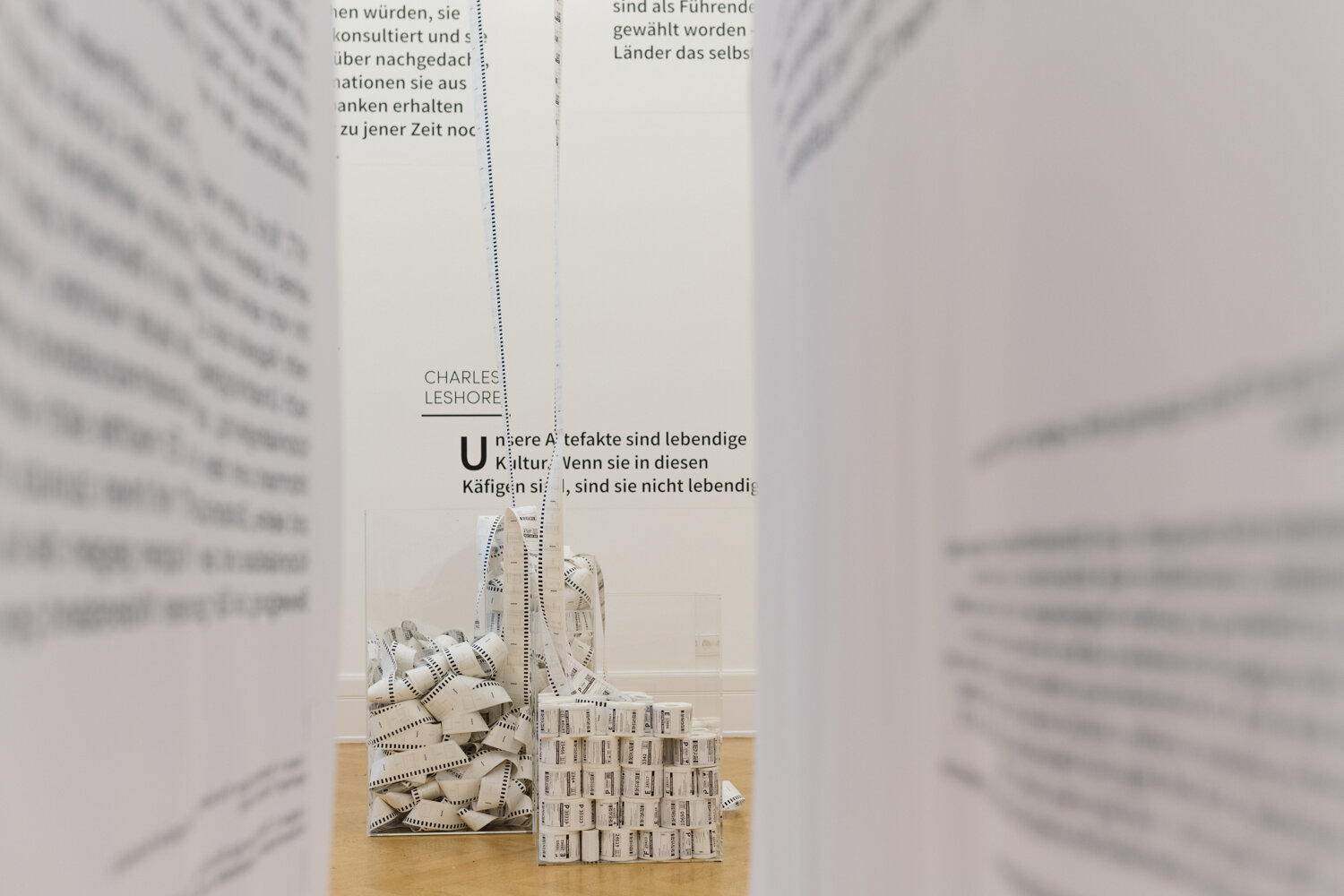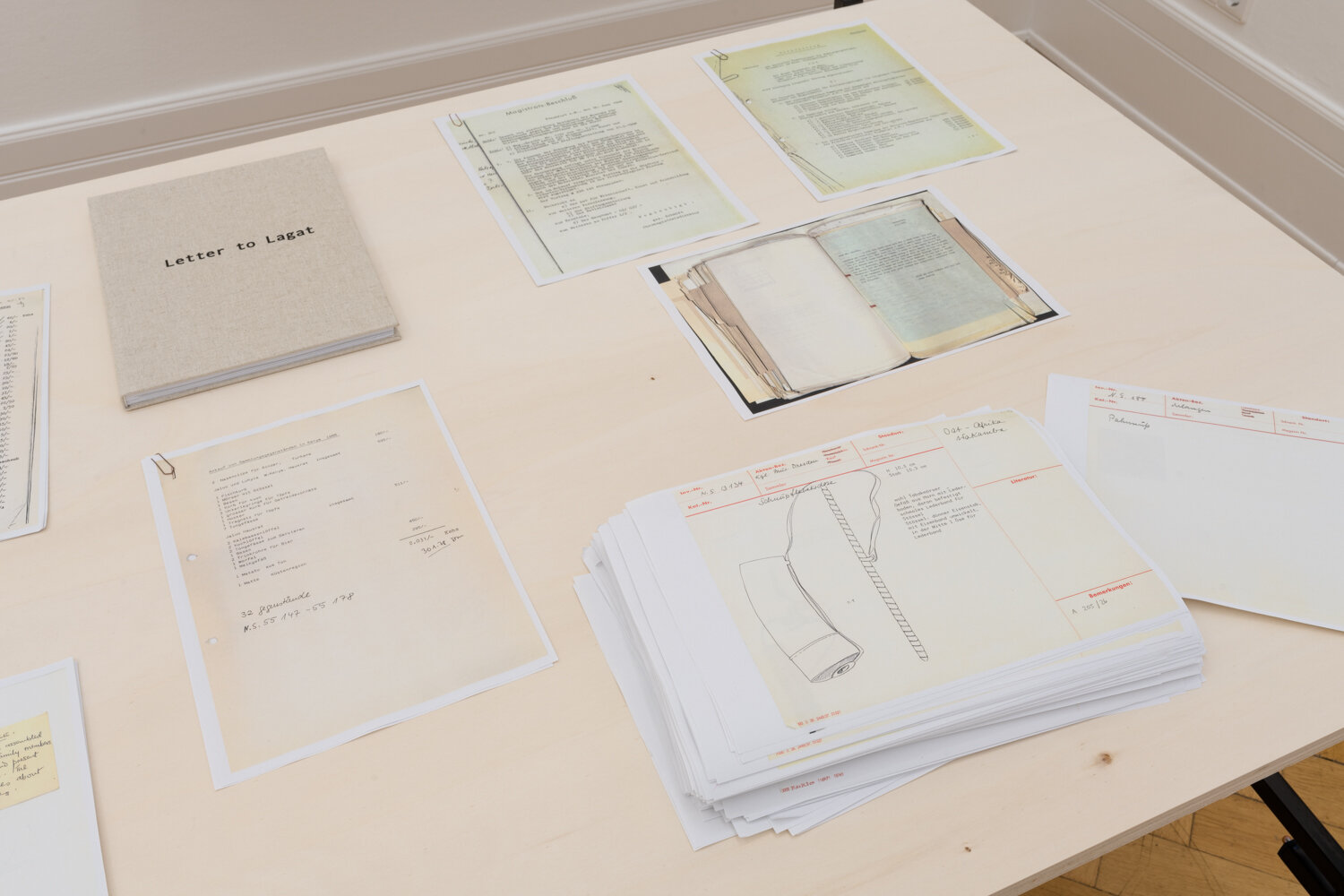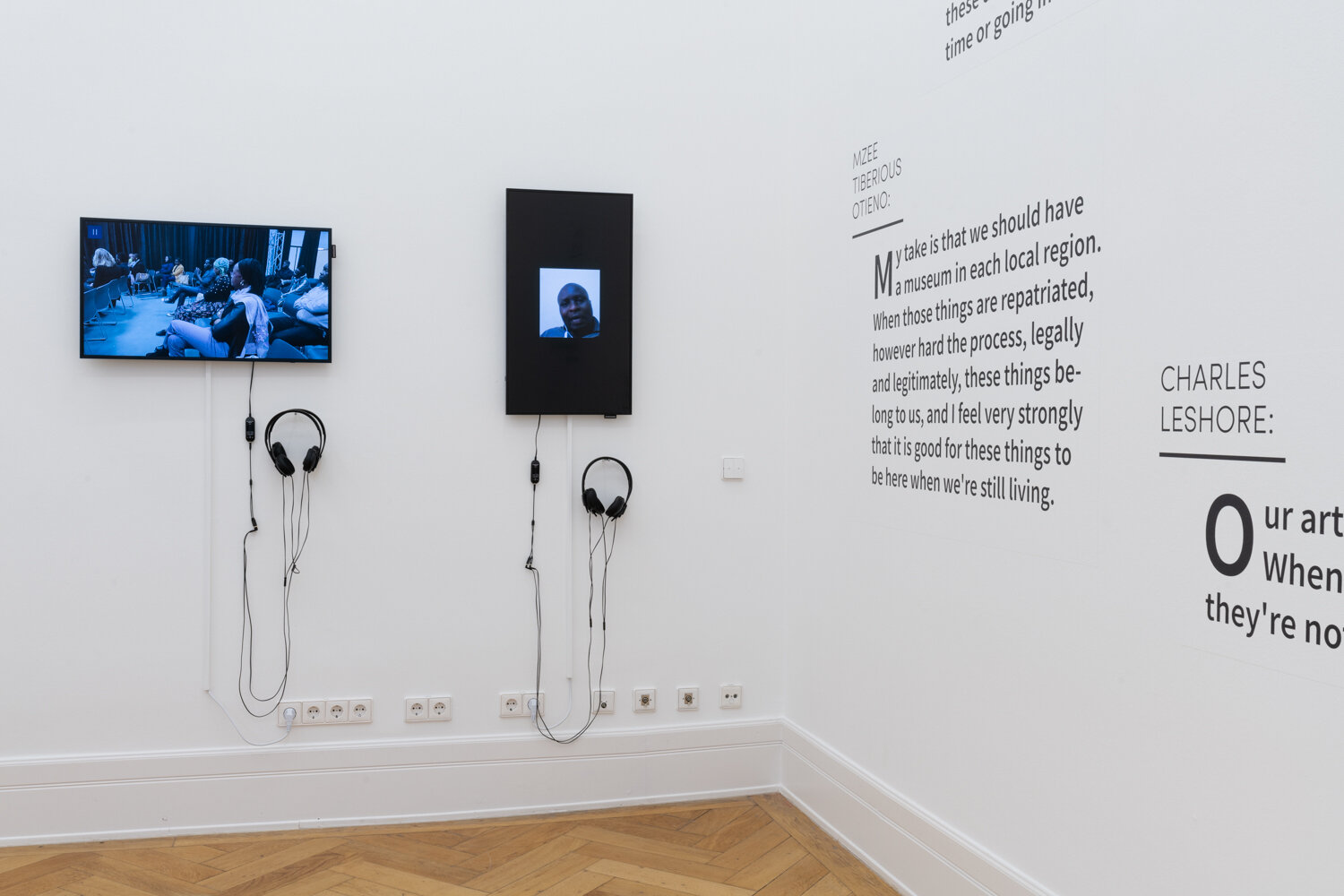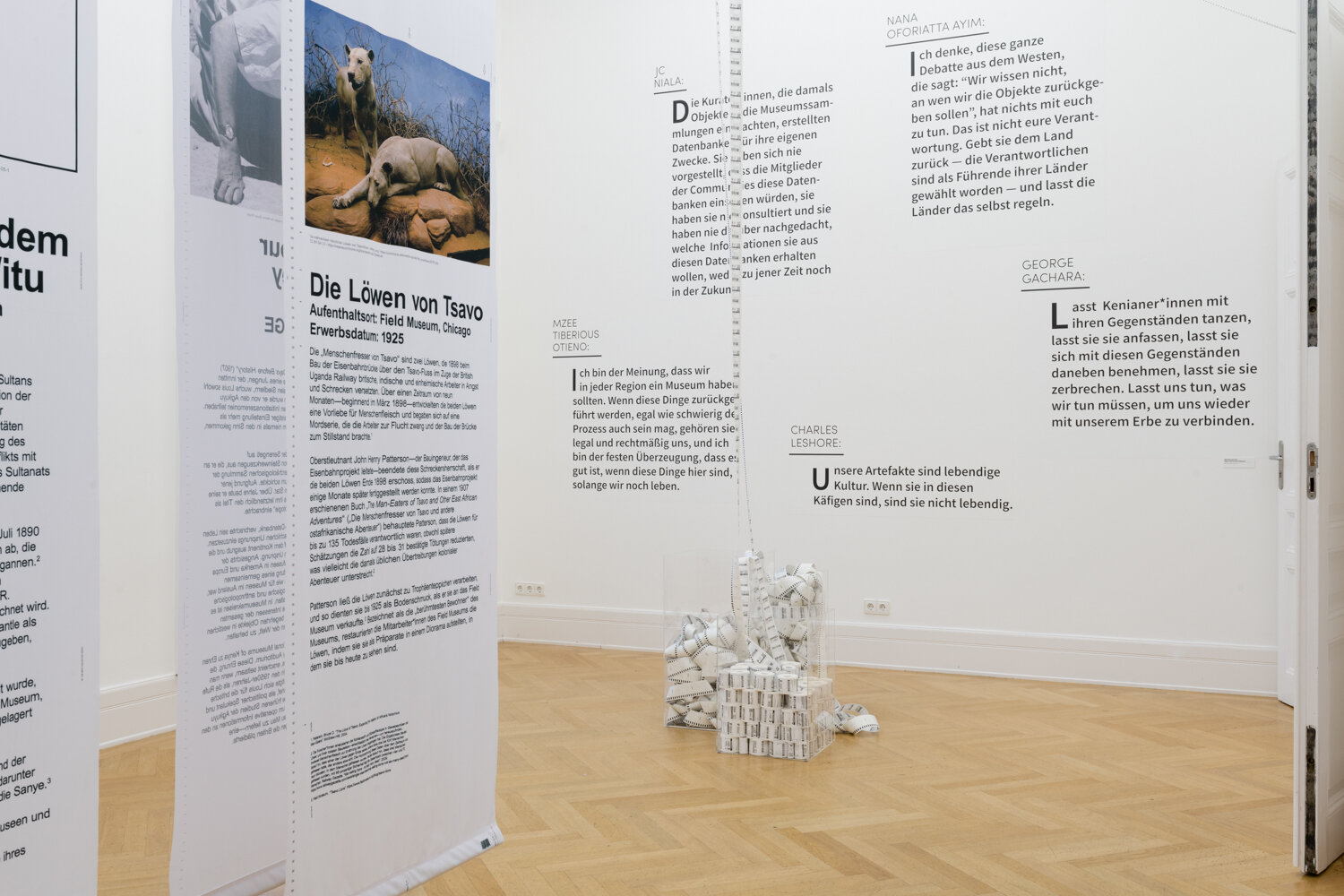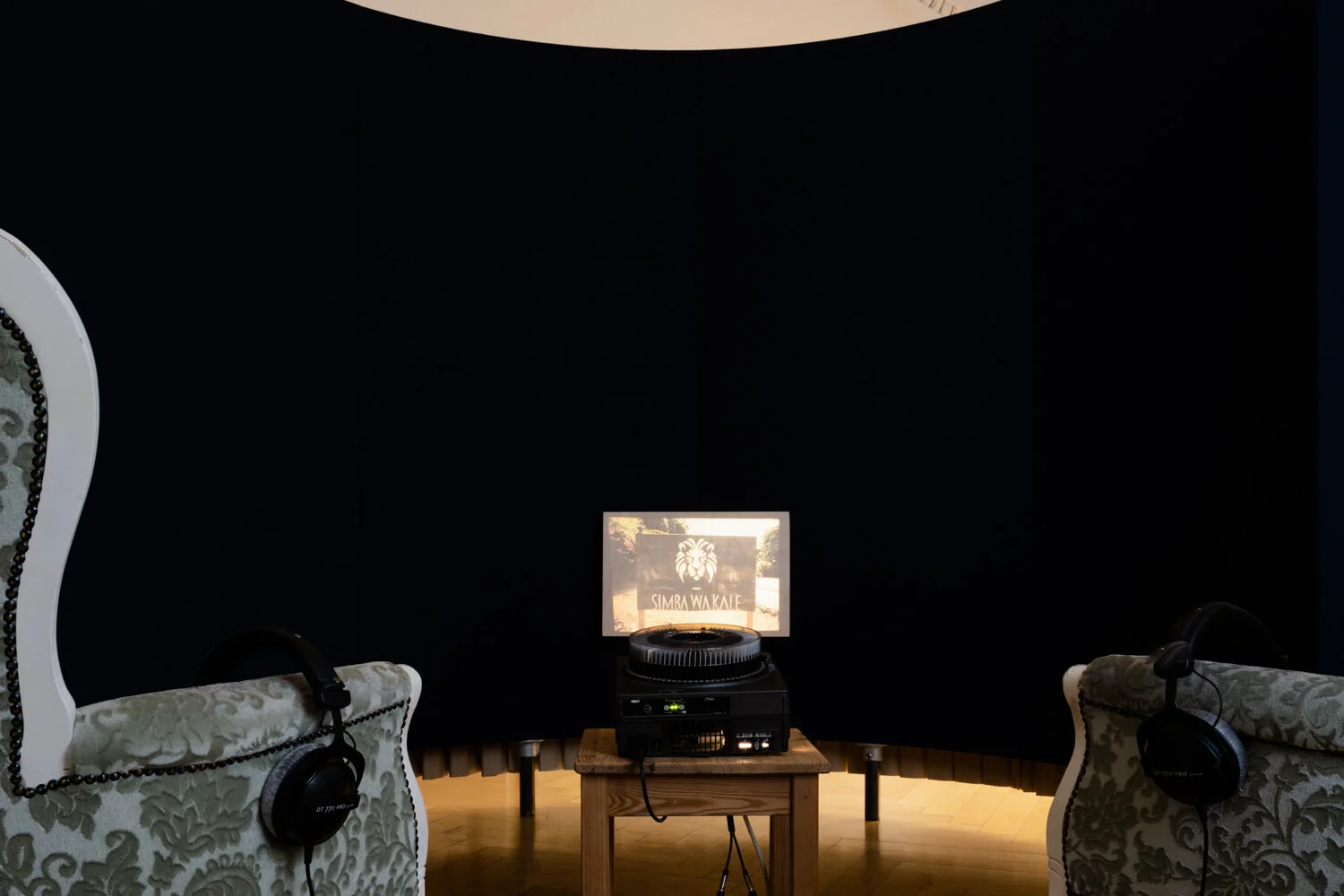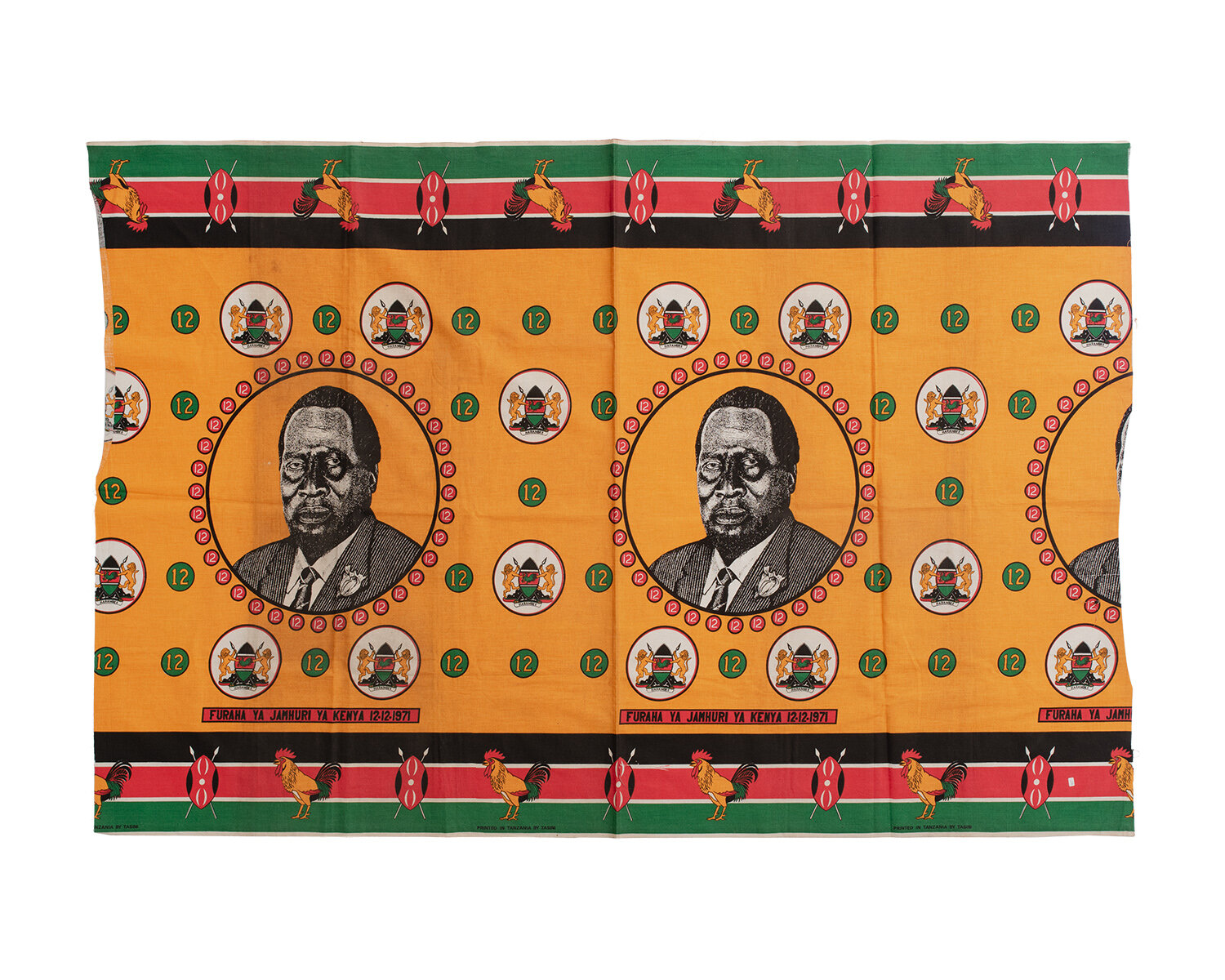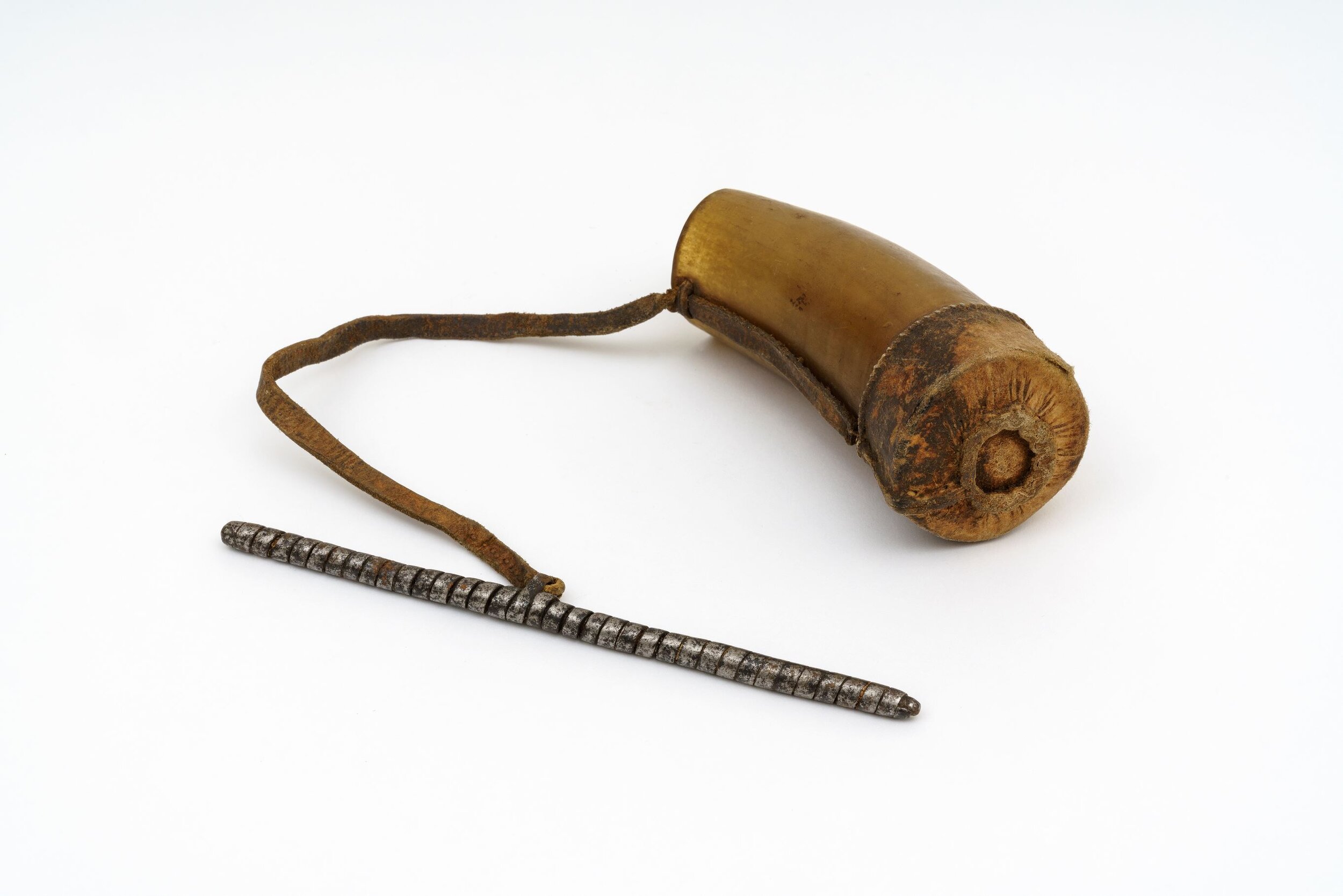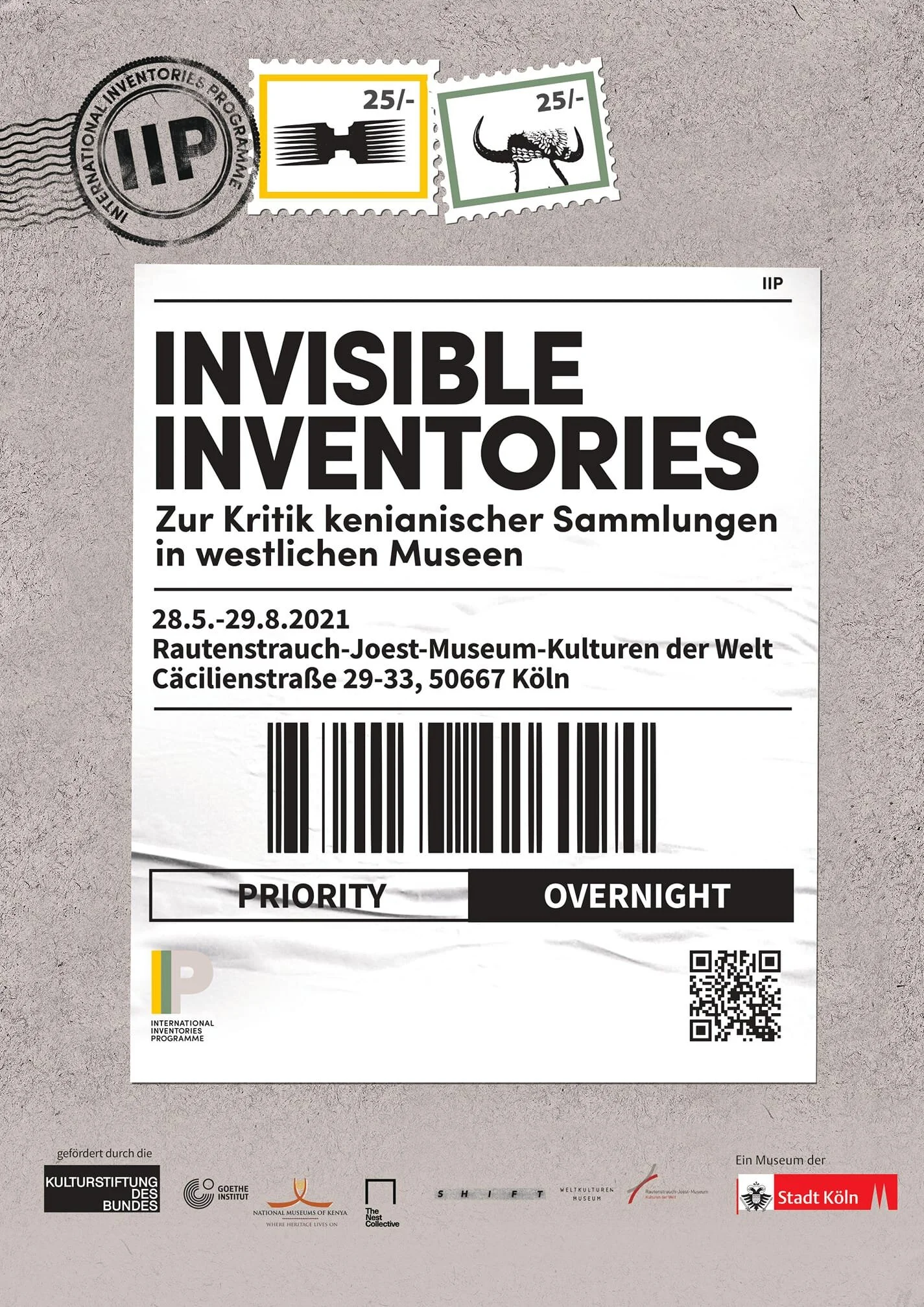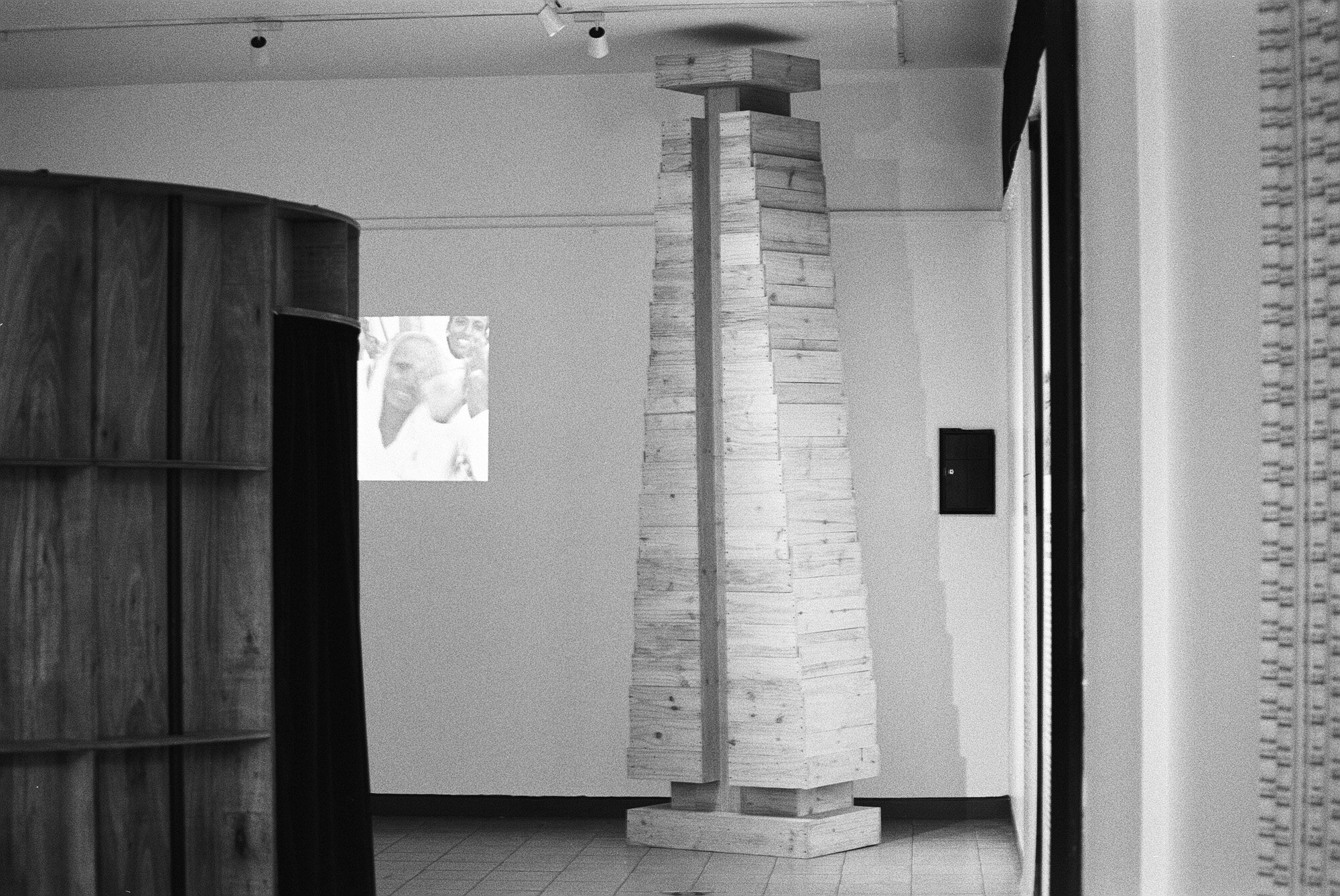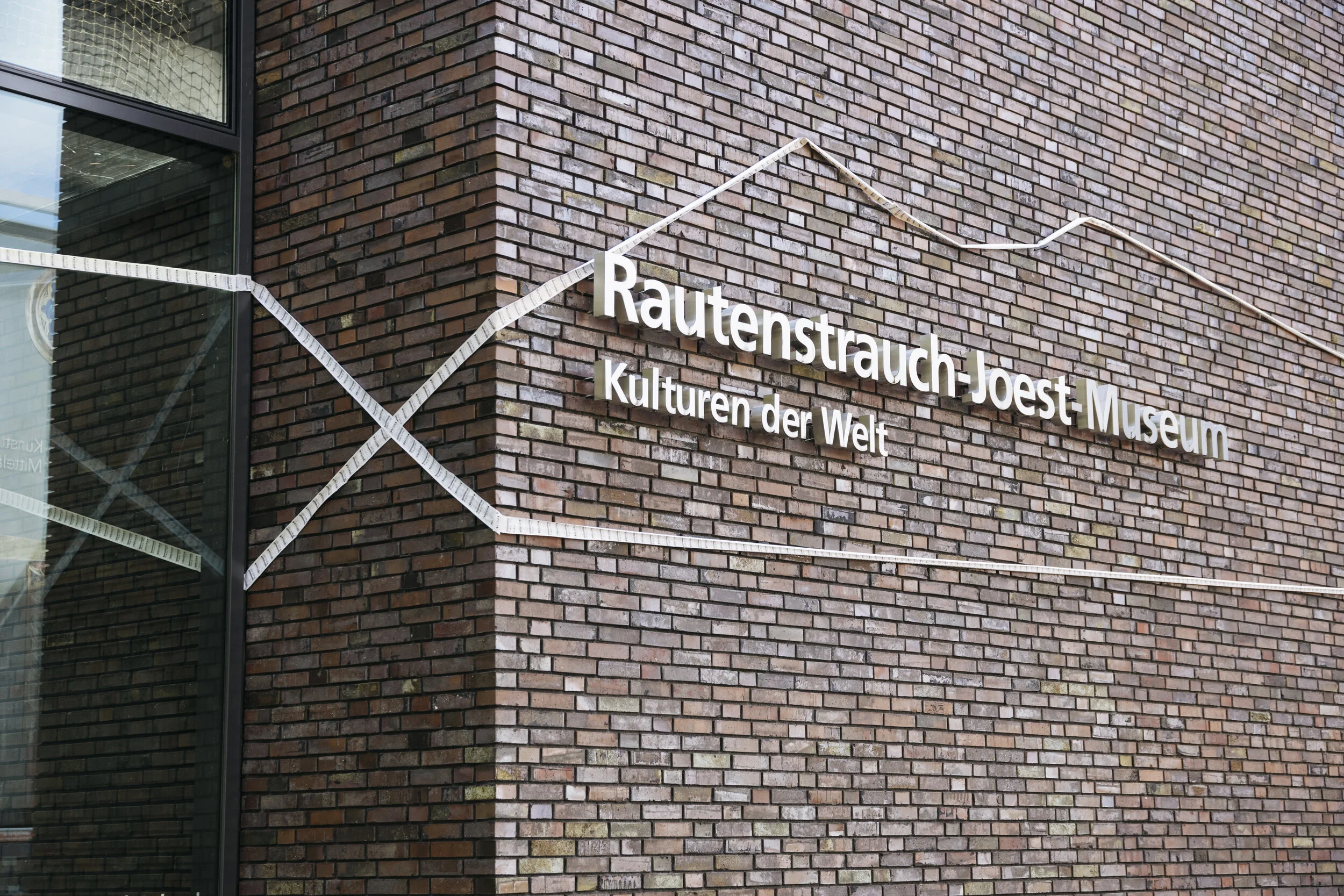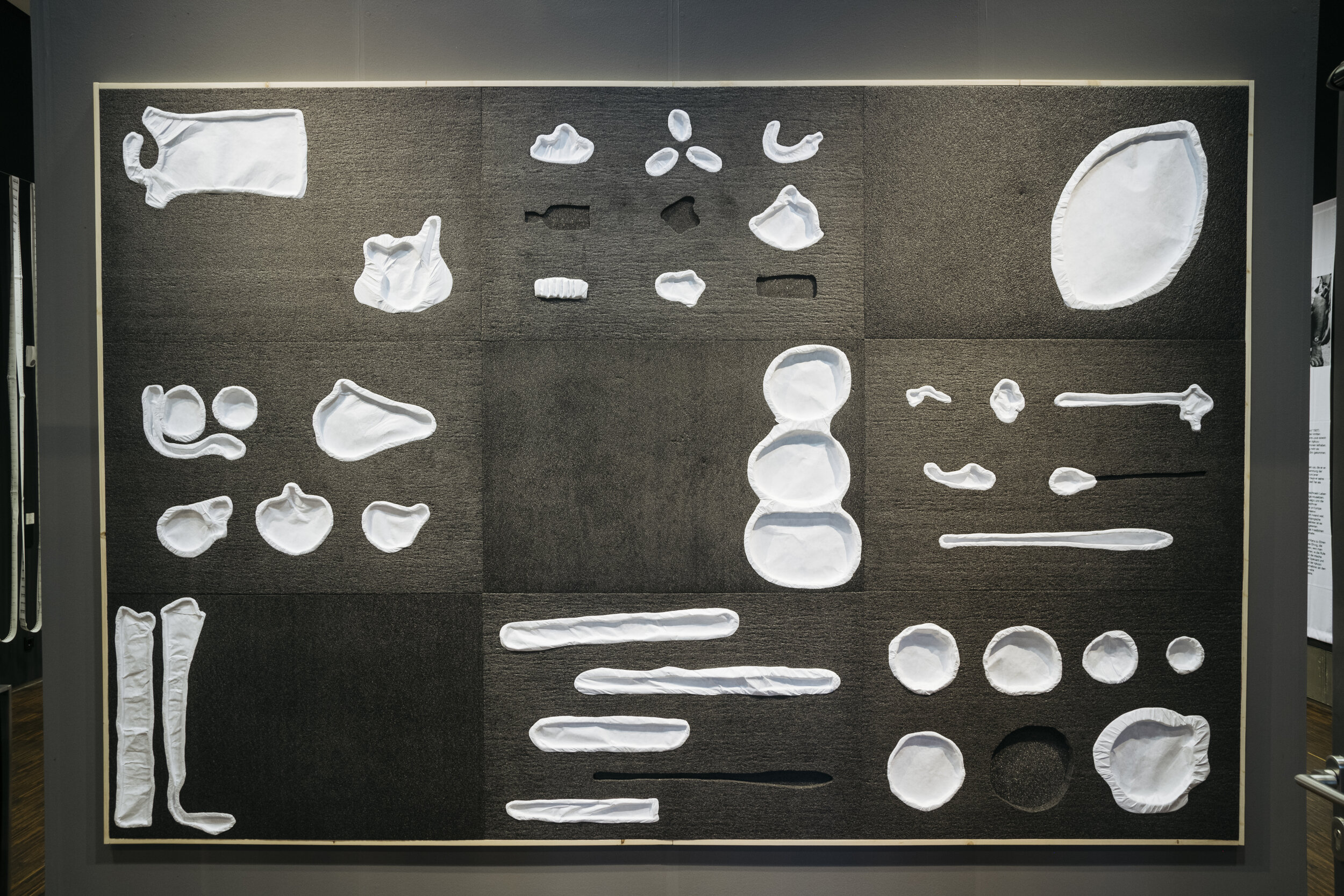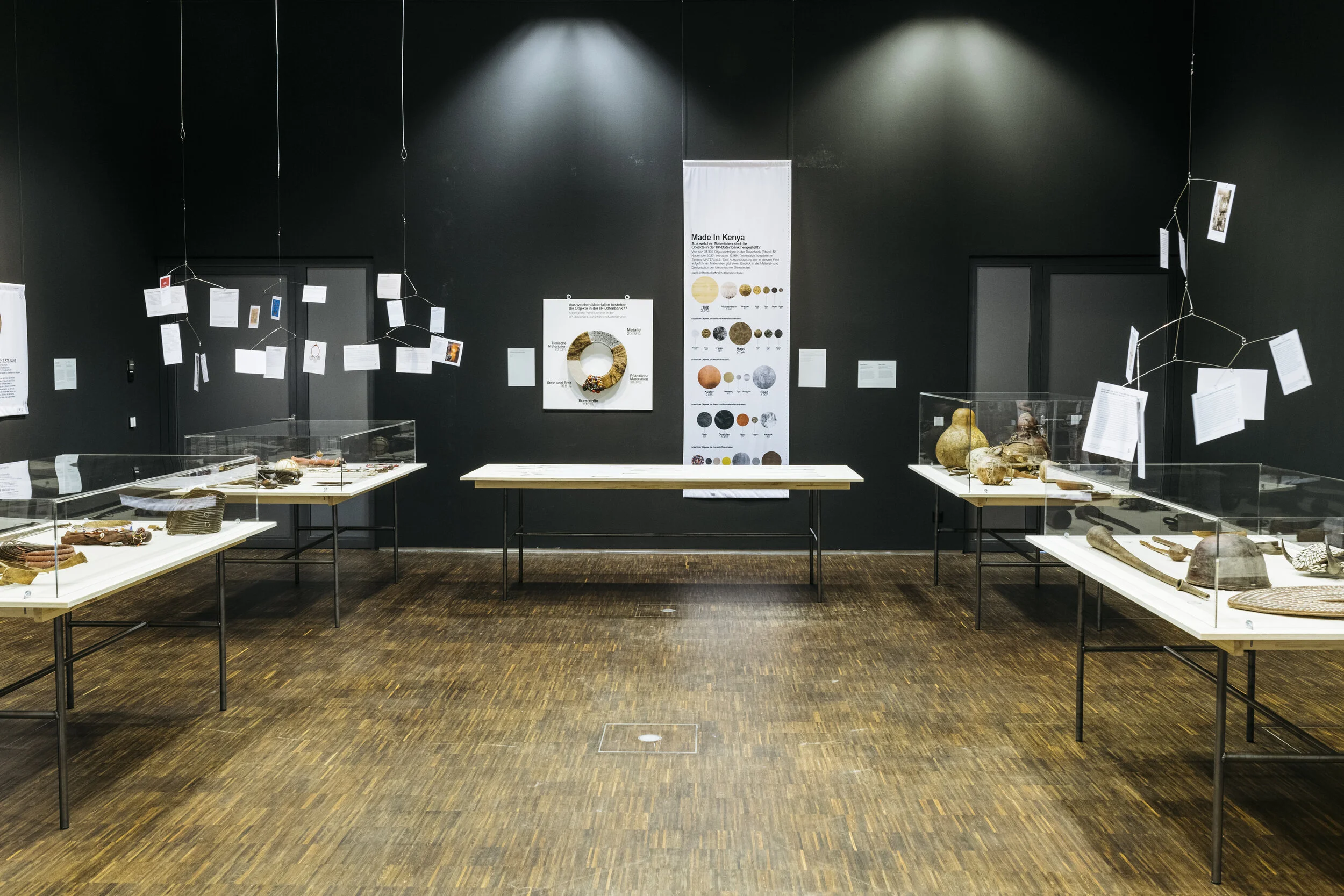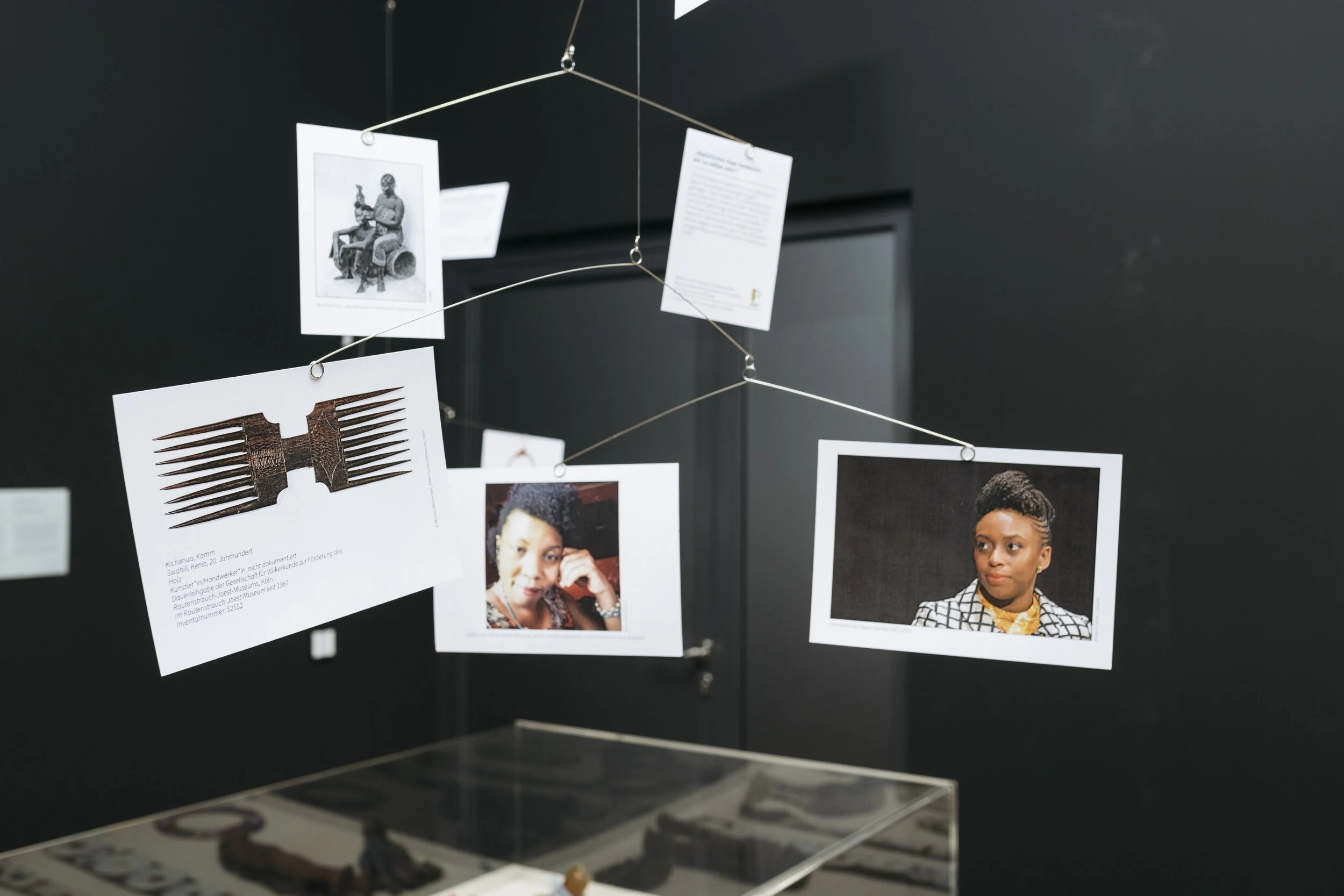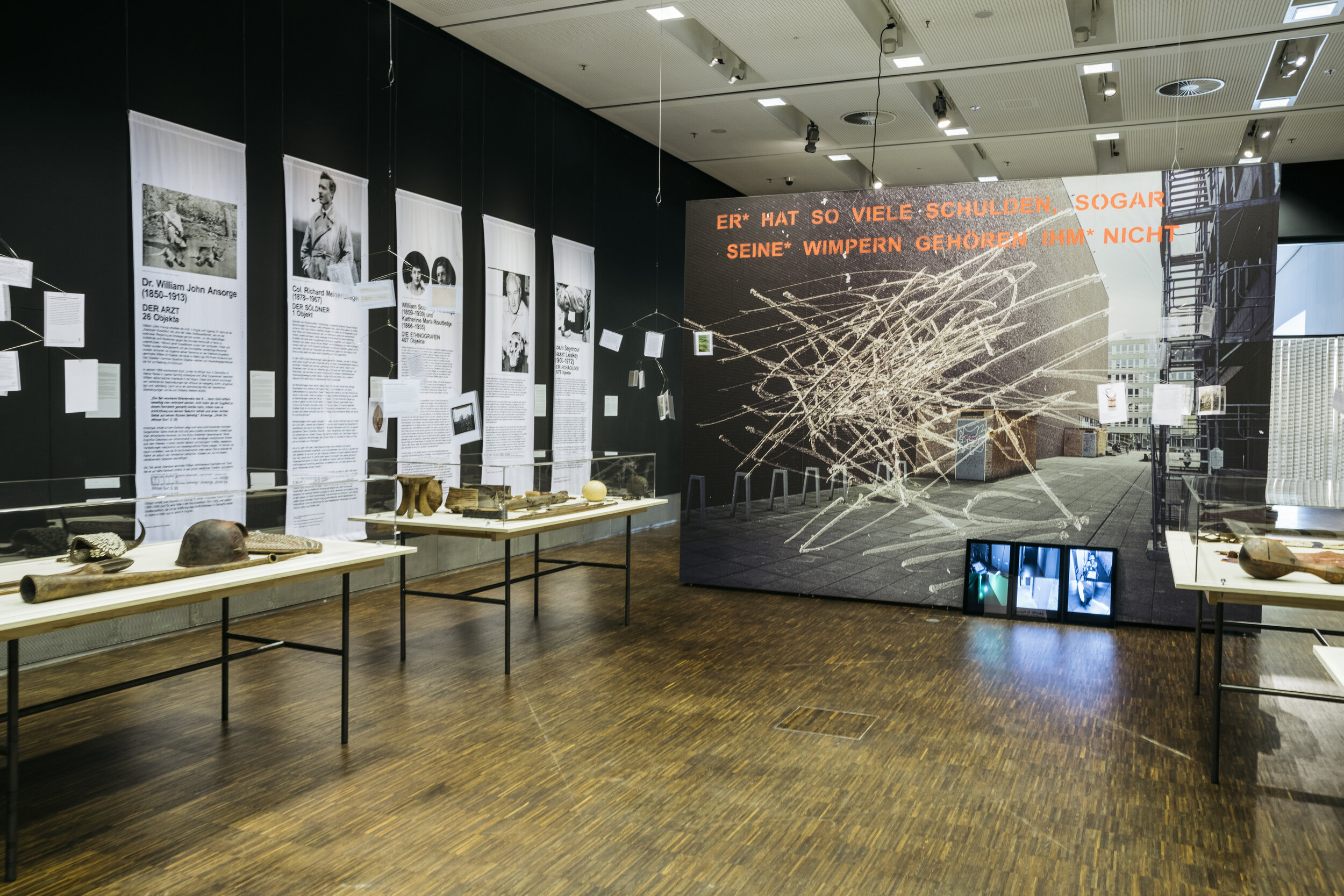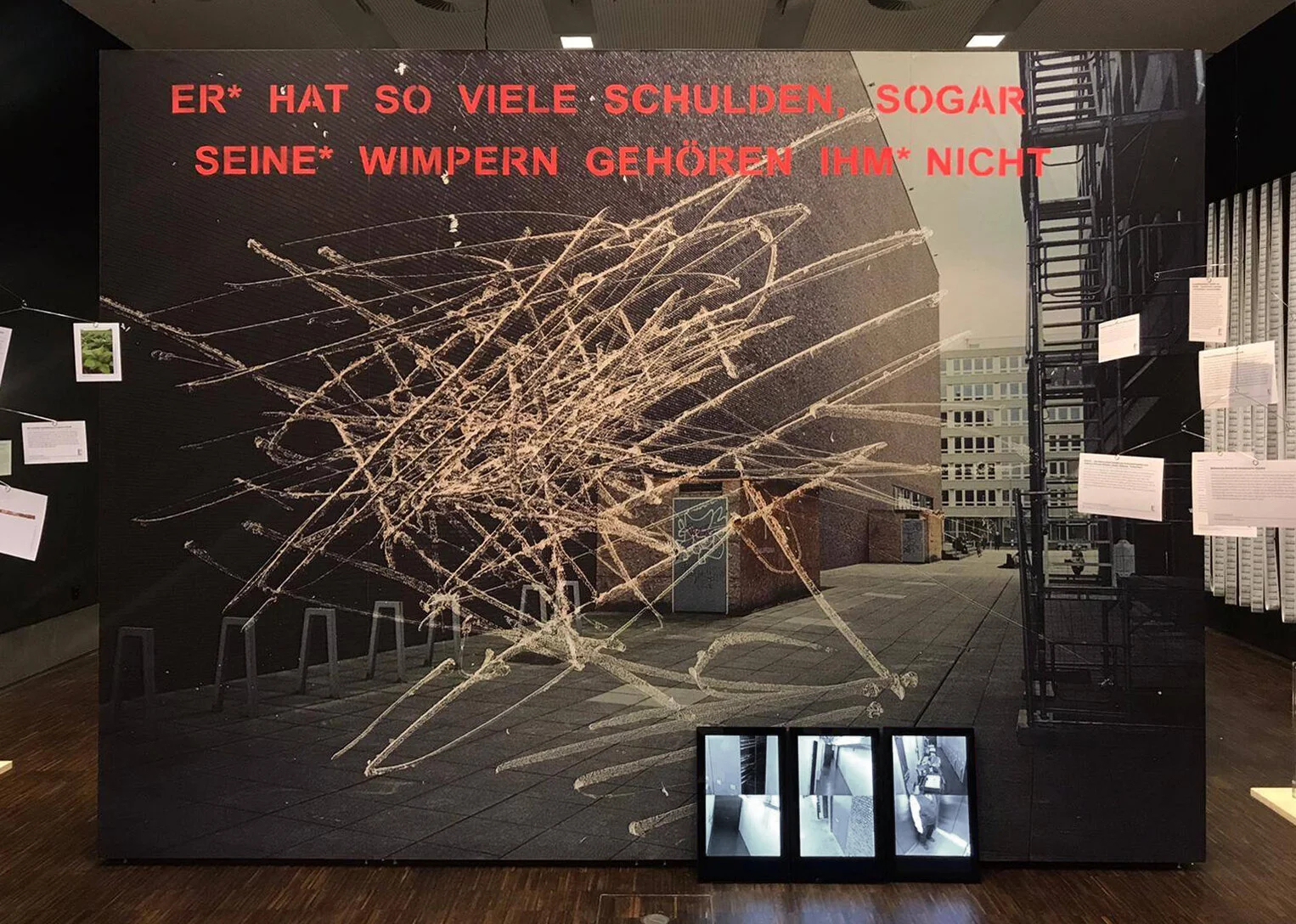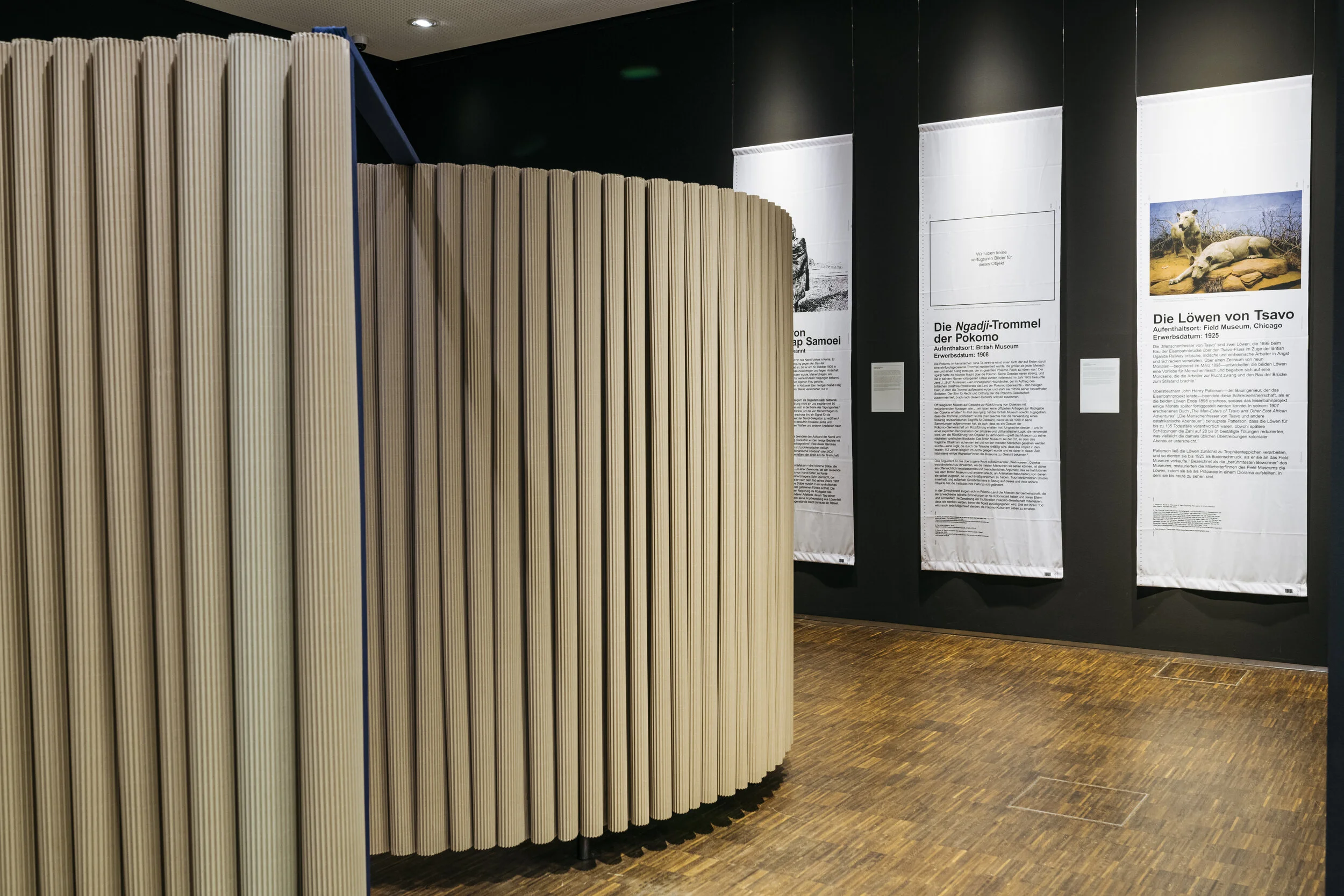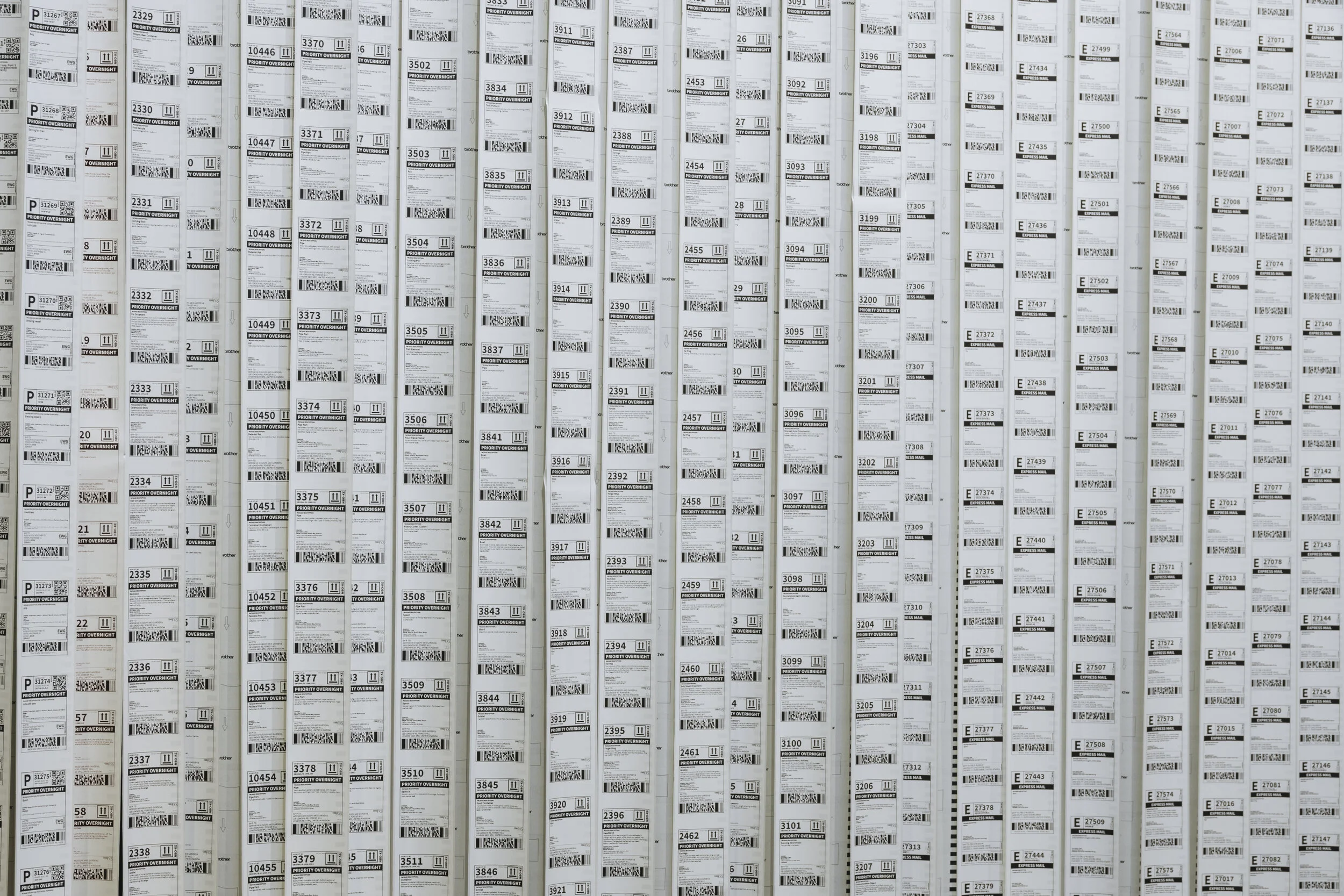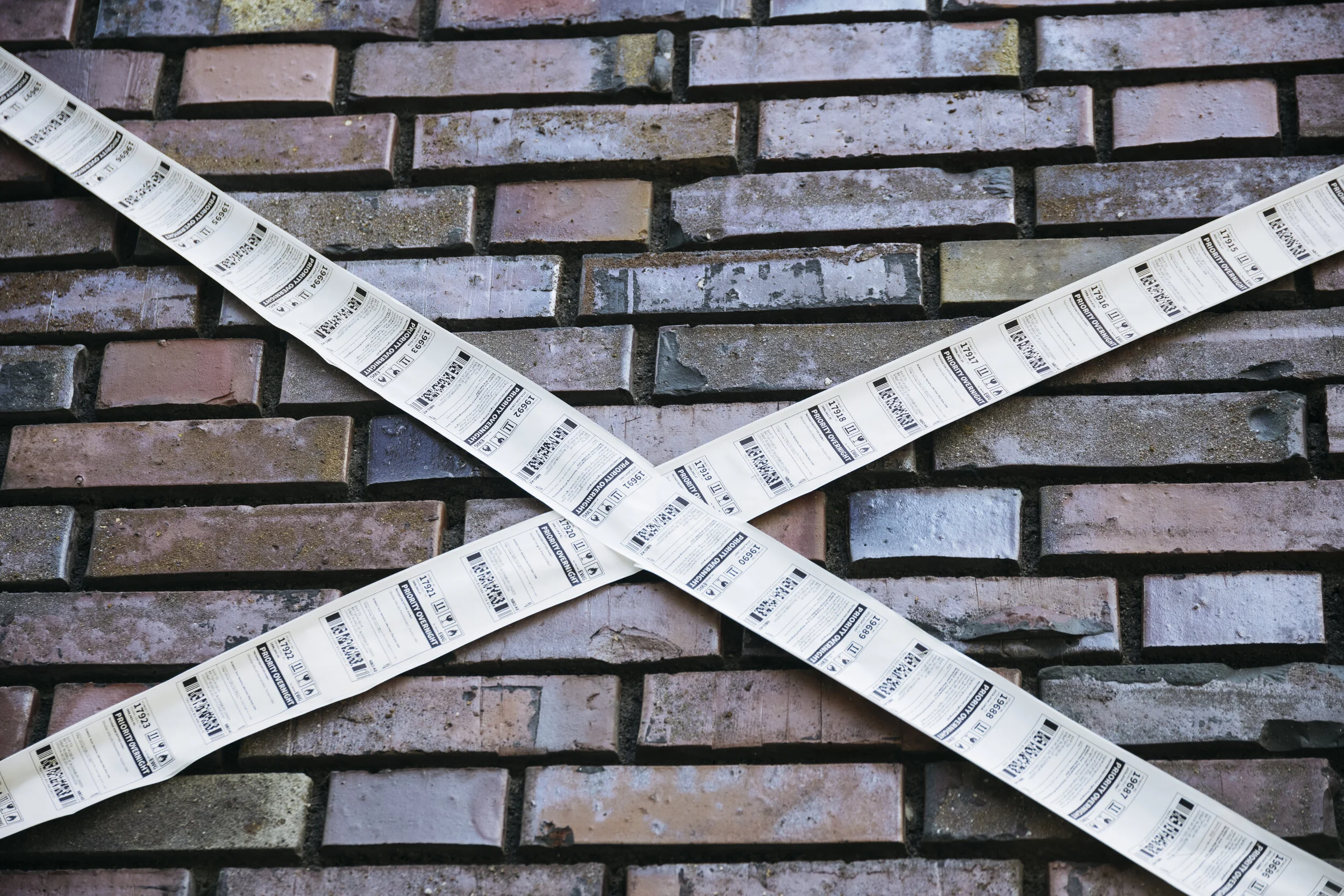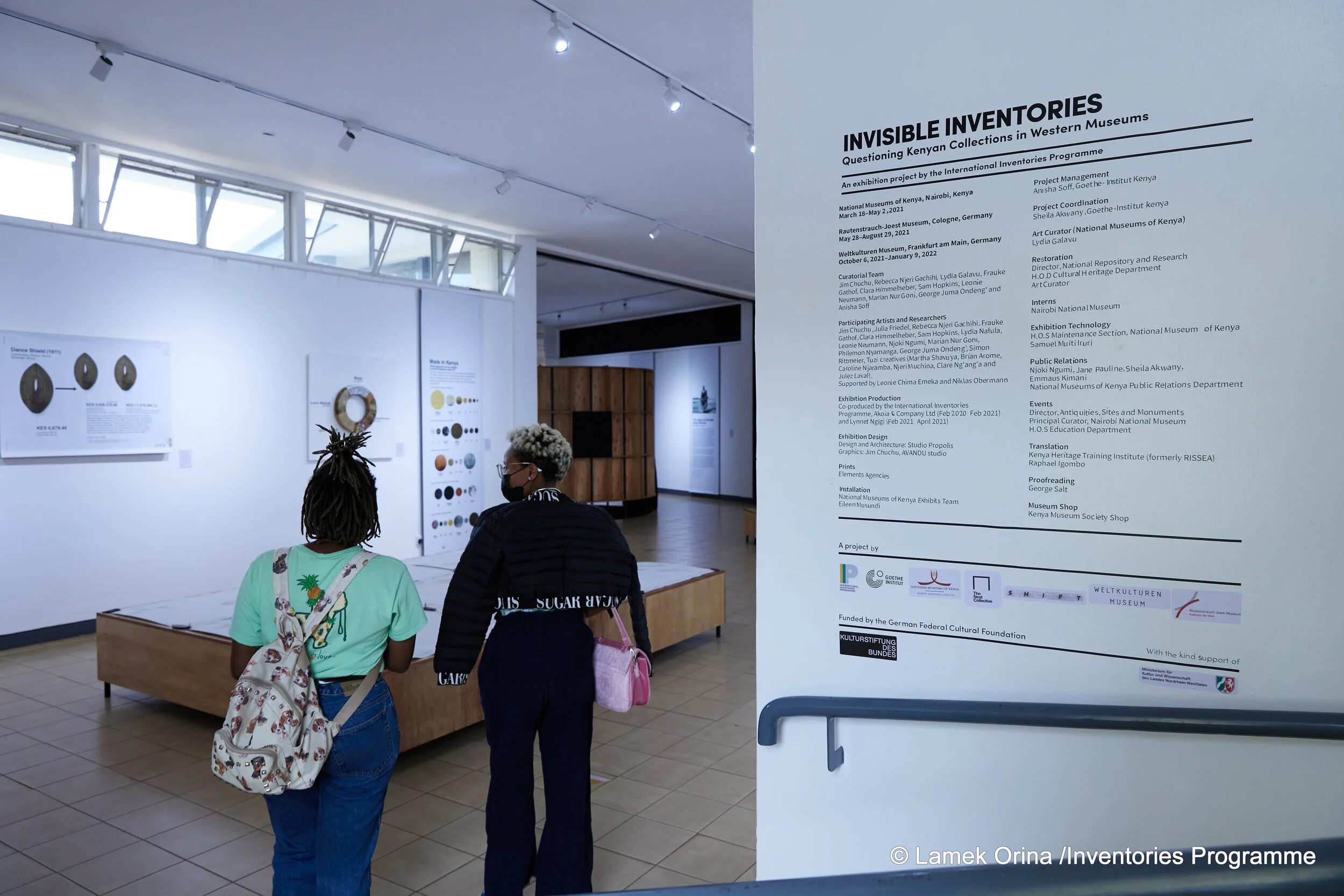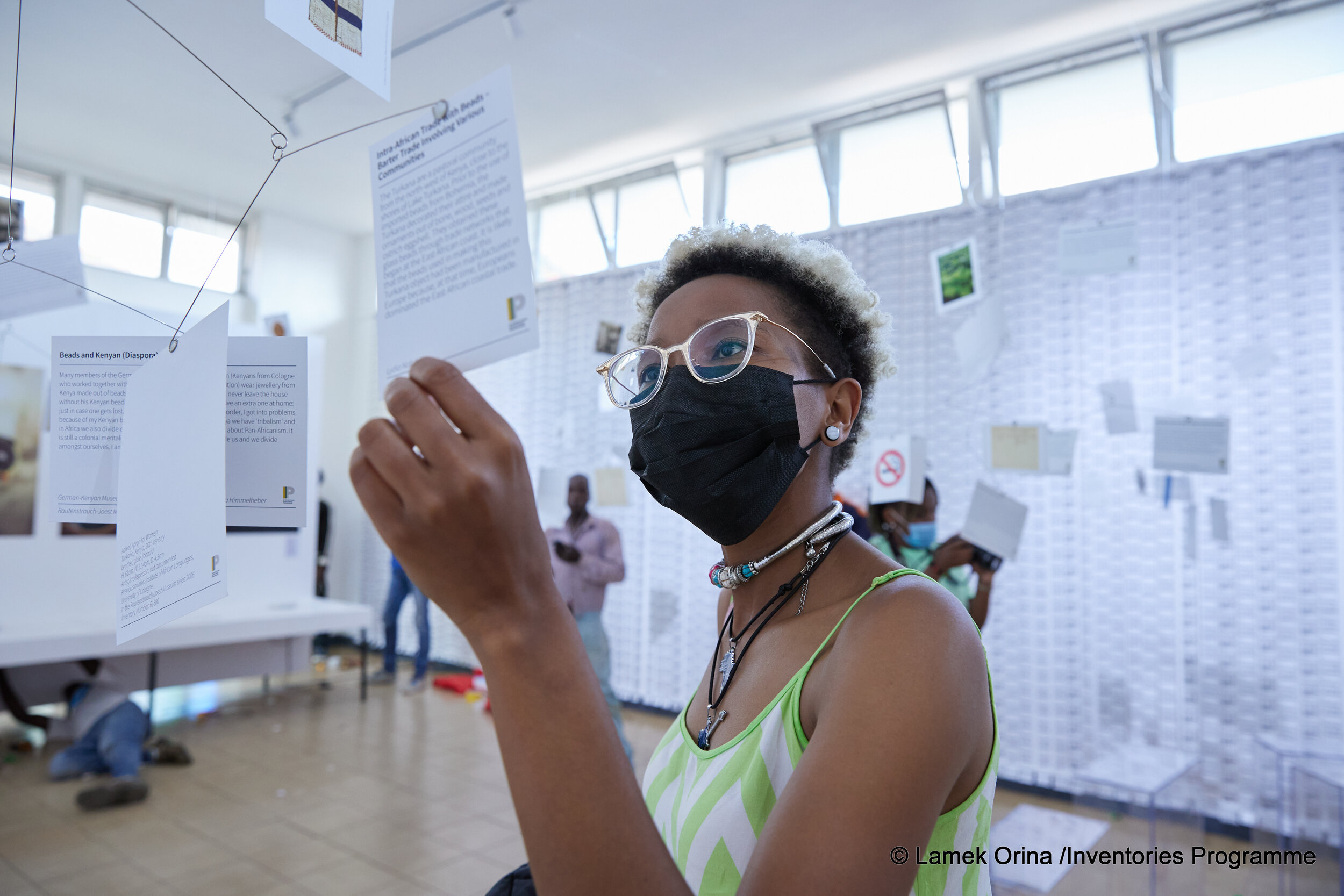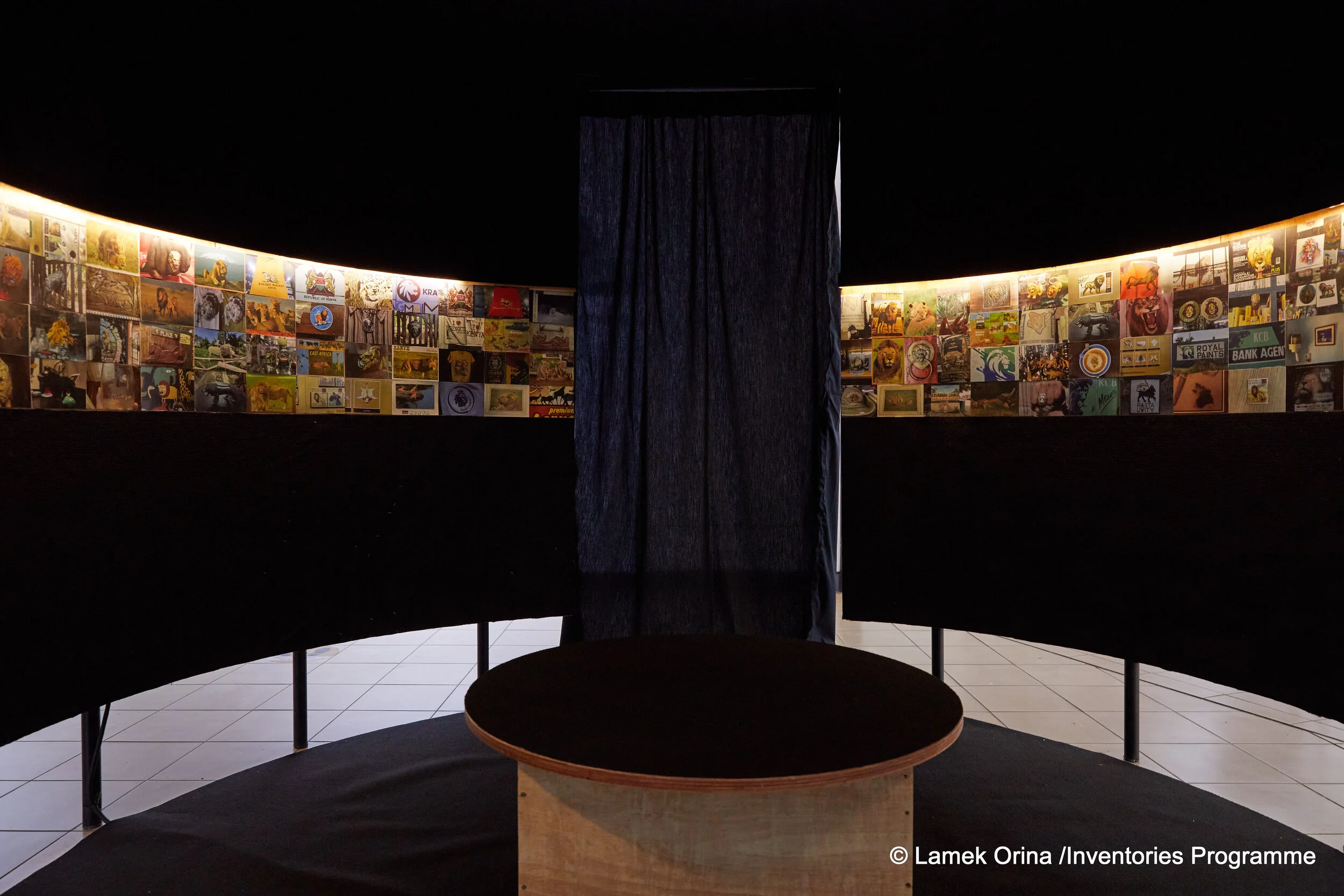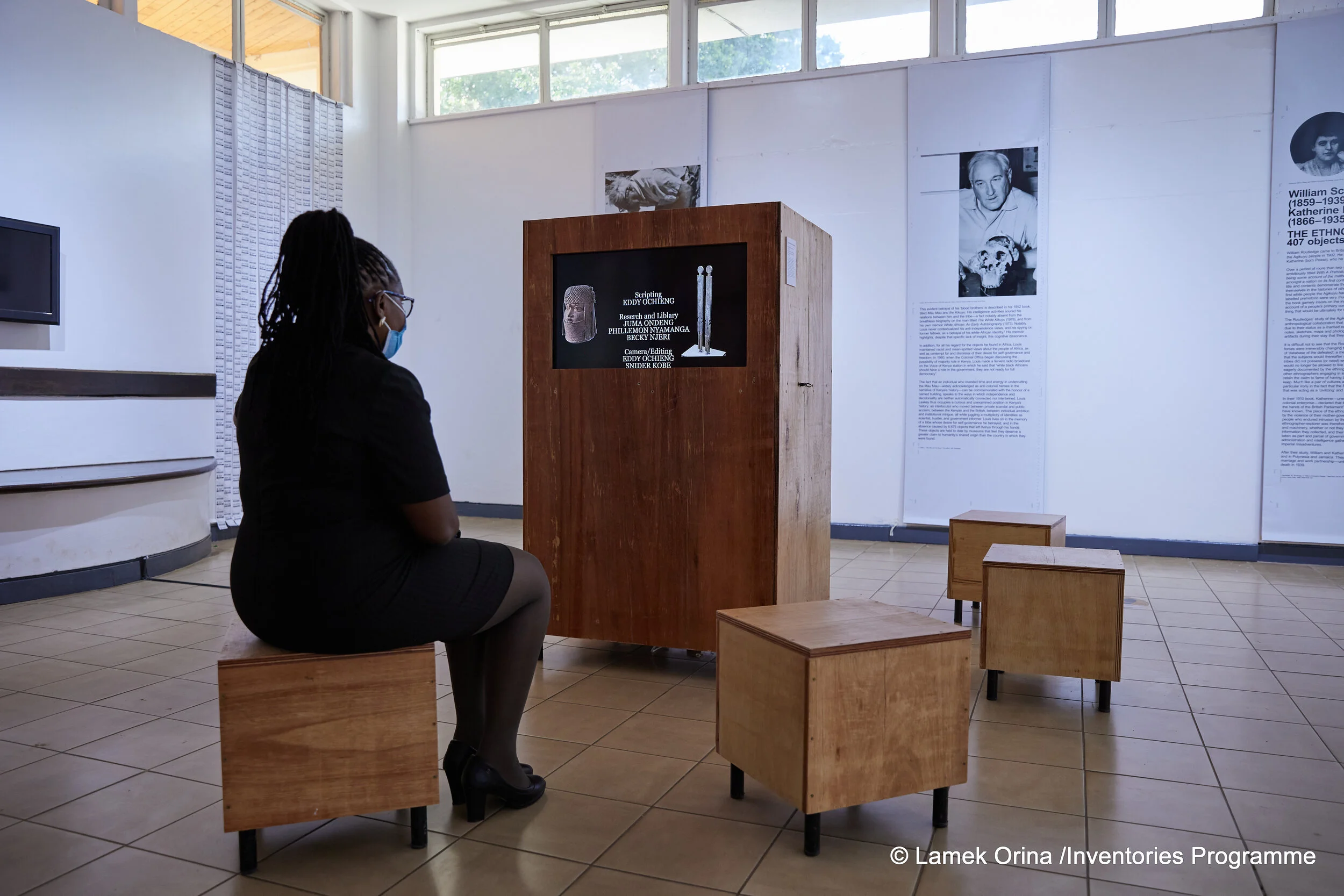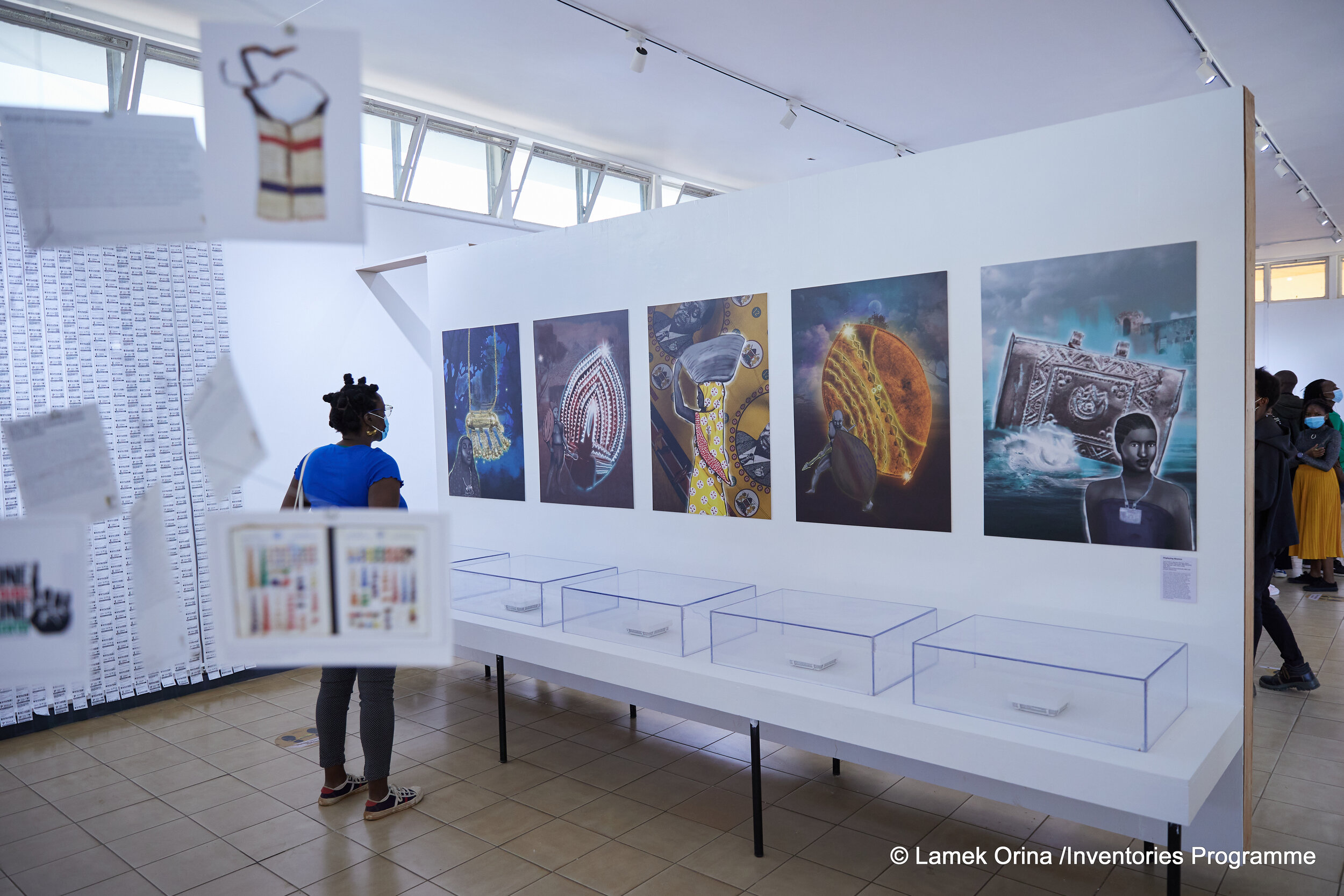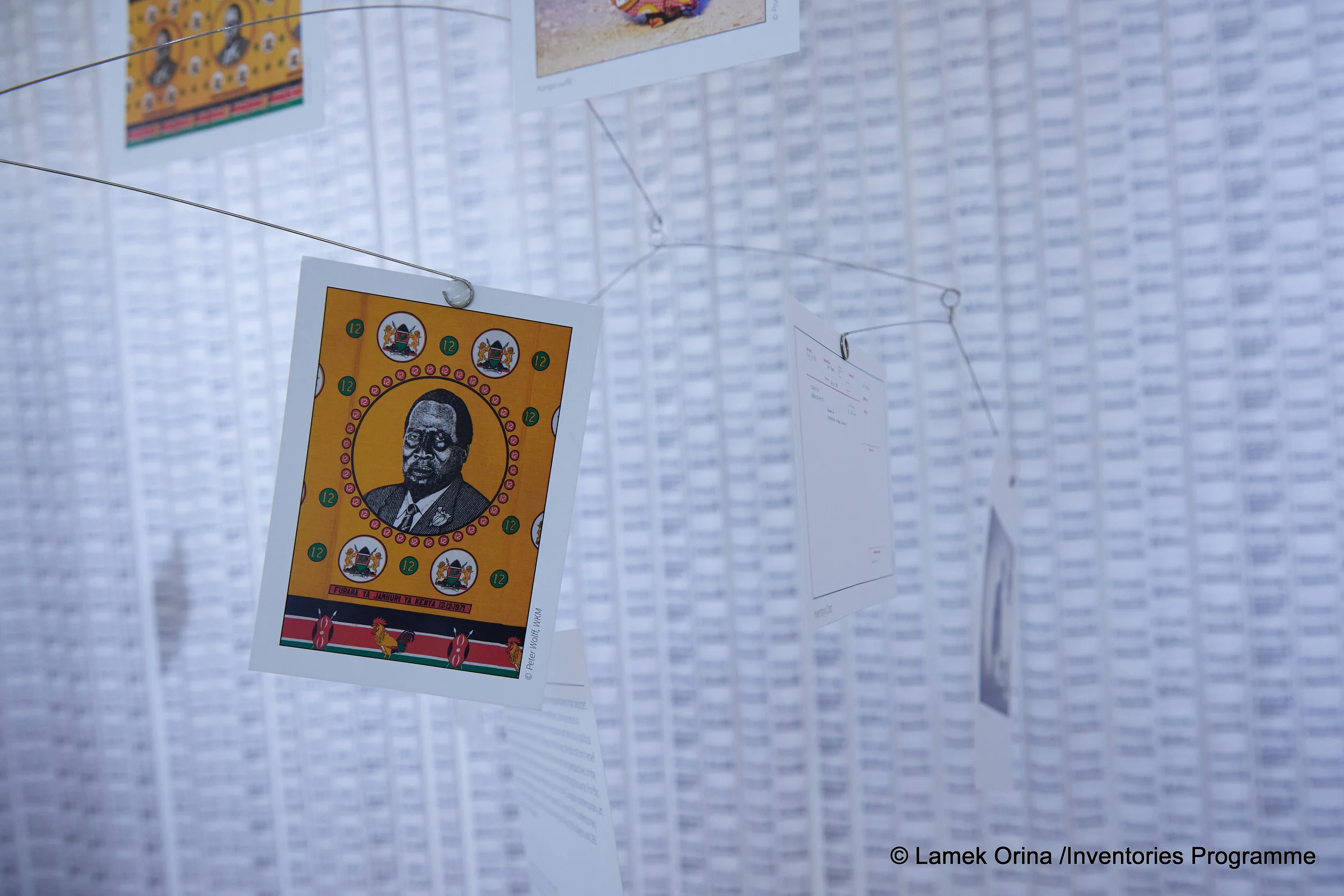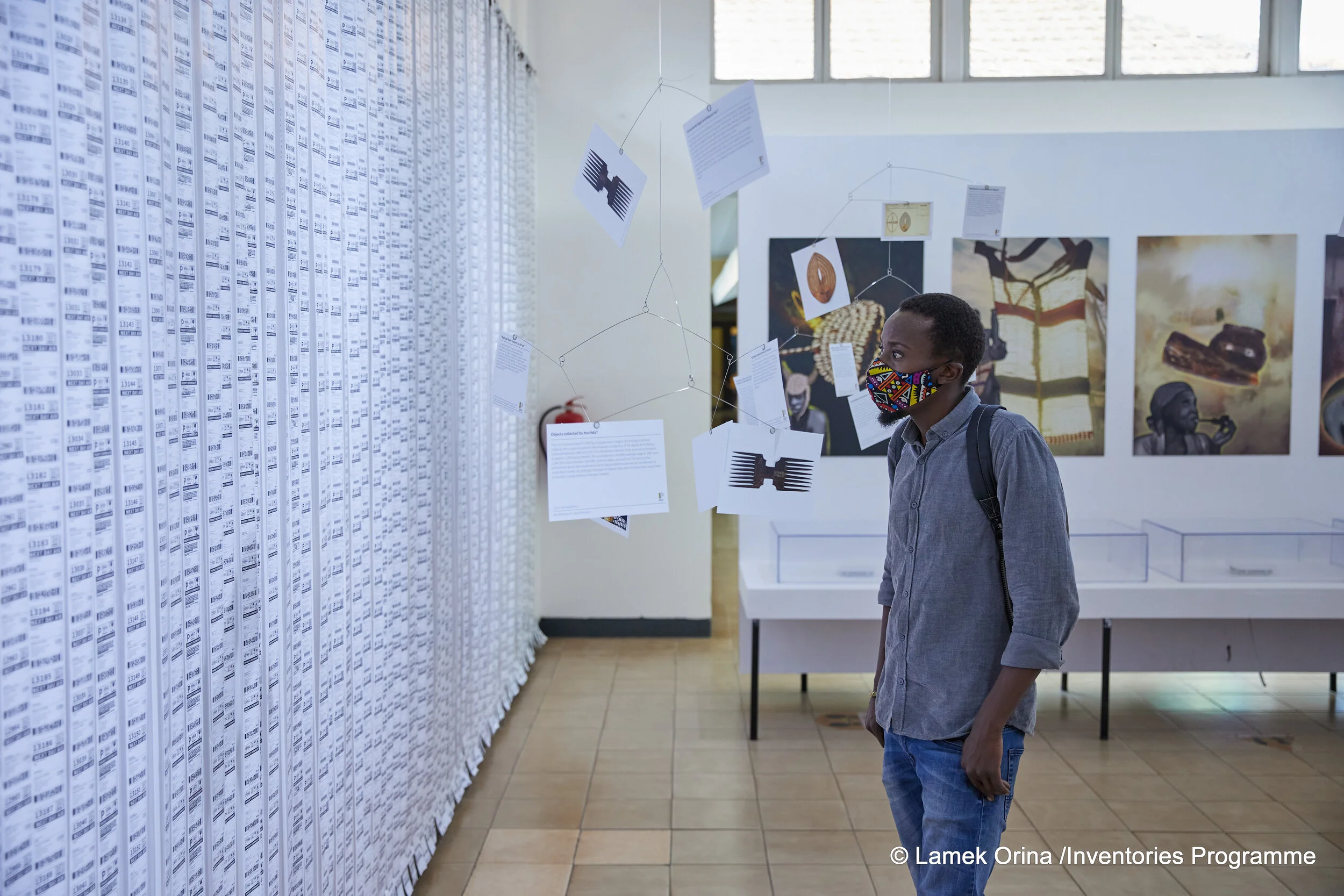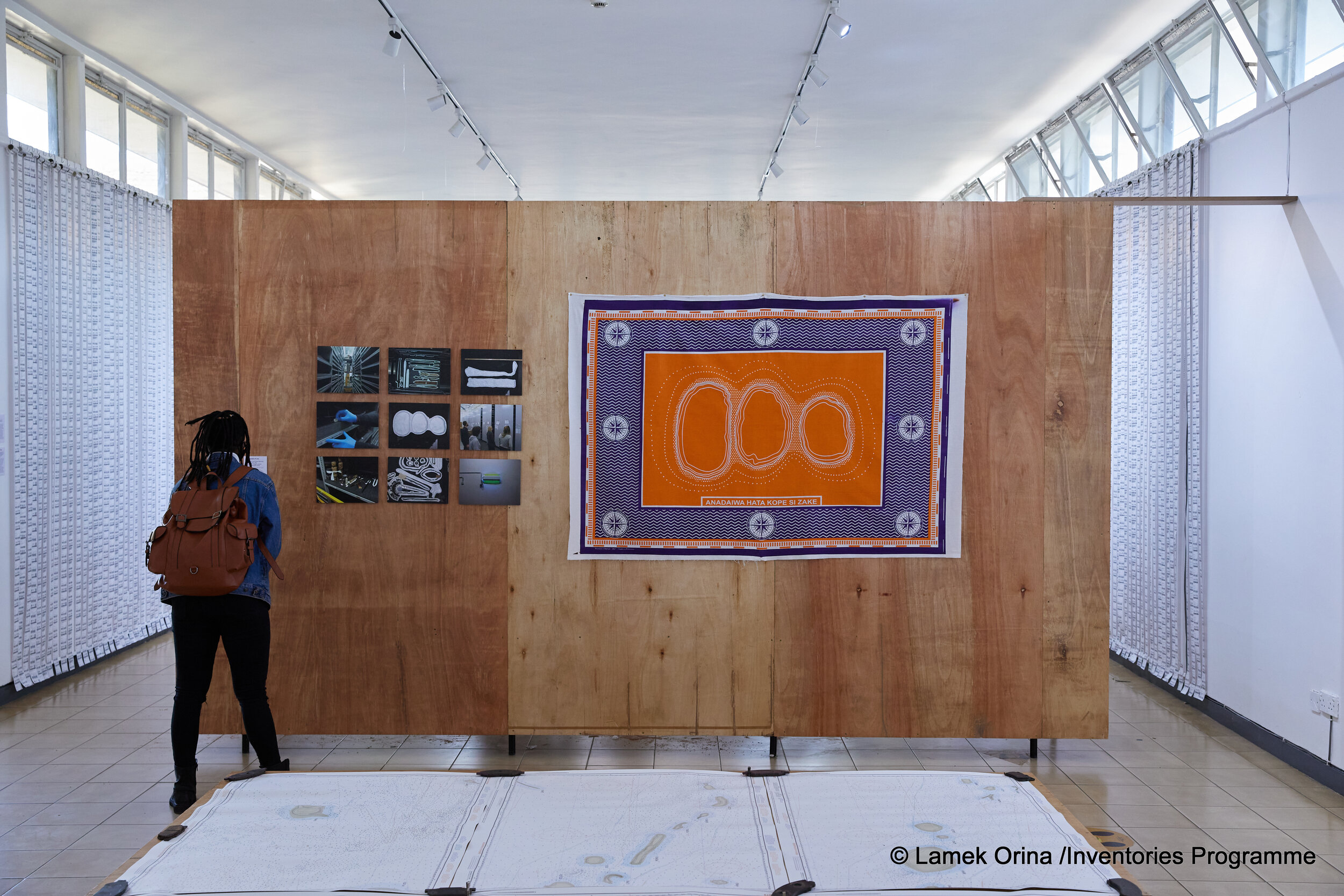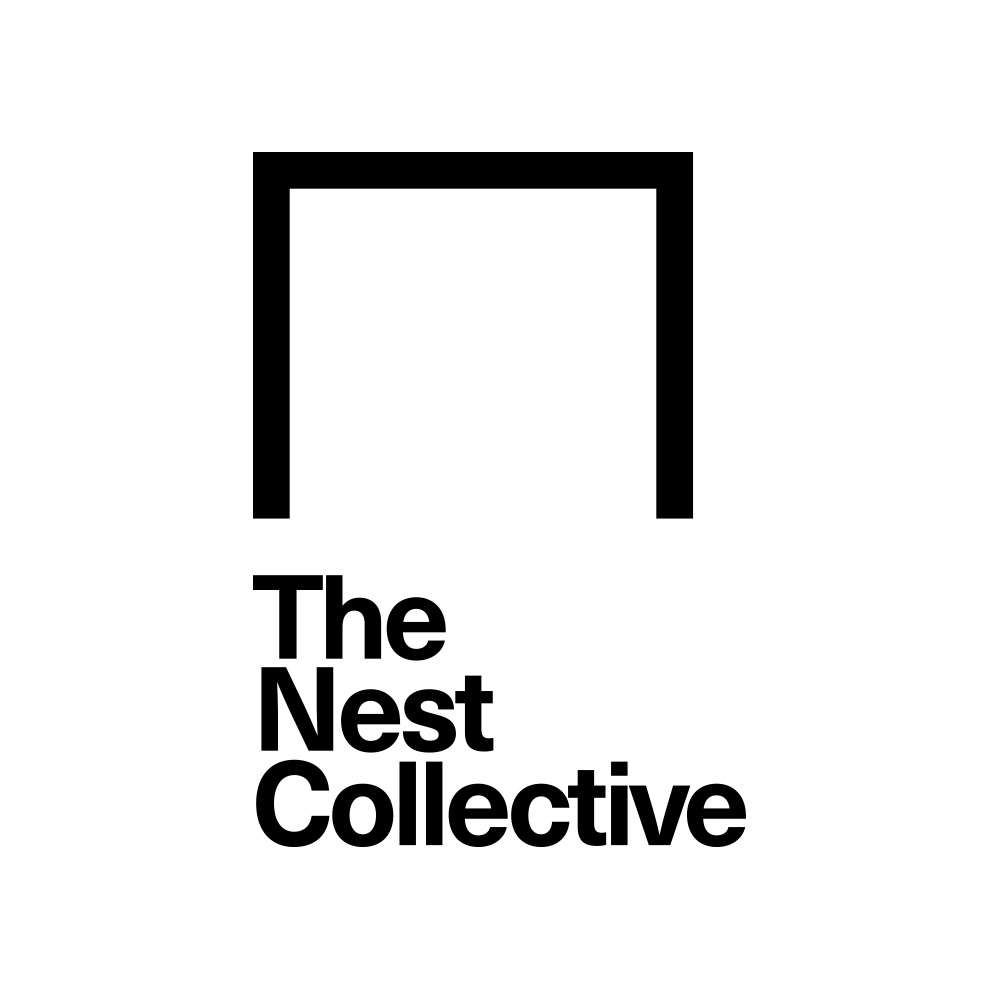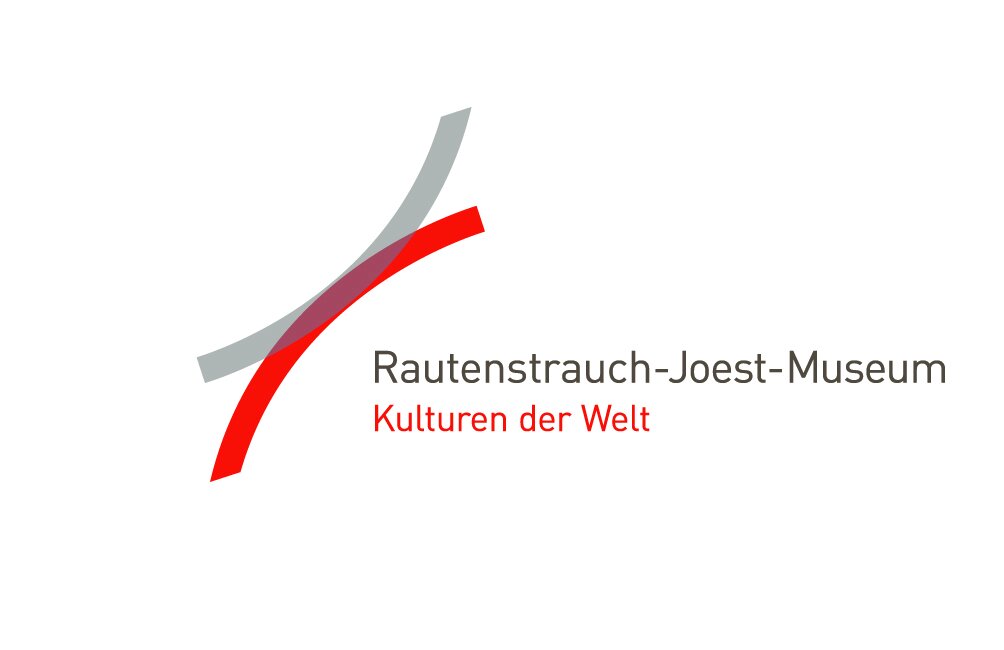INVISIBLE INVENTORIES
Questioning Kenyan Collections in Western Museums
As part of its effort to make its research available to the public and further the debate surrounding Kenyan objects held in foreign institutions, IIP is producing an exhibition titled Invisible Inventories. Through contemporary artworks and academic research, the artists and scholars involved in the exhibition project approach the question of how to make objects—which currently reside in institutions within the global North—present again in contemporary Kenya.
Als Teil der Bemühungen, Forschungsergebnisse der Öffentlichkeit zugänglich zu machen und die Debatte über kenianische Objekte, die in ausländischen Institutionen aufbewahrt werden, zu fördern, produziert IIP die Ausstellung Invisible Inventories. Durch zeitgenössische Kunstwerke und akademische Forschung nähern sich die am Ausstellungsprojekt beteiligten Künstler*innen und Wissenschaftler*innen der Frage, wie Objekte, die sich derzeit in Institutionen des globalen Nordens befinden, im zeitgenössischen Kenia wieder präsent gemacht werden können.
Dates:
National Museum of Kenya, Nairobi 18.03. - 02.05.2021
Rautenstrauch-Joest Museum, Cologne 28.05. - 19.08.2021
Weltkulturen Museum, Frankfurt 06.10.2021 - 09.01.2022
Opening a Dialogue
Alongside opening a conversation about the presence of these objects in Germany, and their provenance, the project questions the results of the objects’ absence in Kenya. Hence, for the first time, Invisible Inventories opens up a public and open platform for Kenyan knowledge, experiences and ideas about this controversial and emotional topic. Its aim is to decolonize the discourse on restitution by distributing African perspectives and positions underrepresented in international discussions, thus contributing to a larger, much-needed debate on colonial histories, and how societies can negotiate and learn from them more honestly.
Next to the artistic responses to the topic by the artist collectives The Nest and SHIFT and to the research presentation on the collections by the three museums involved, this exhibition will also feature a visual presentation of the database of Kenyan objects held in museums abroad, which represents one of the main endeavours of the International Inventories Programme.
Durch die Ausstellung wird ein Gespräch über die Präsenz dieser Objekte in Deutschland und ihre Provenienz eröffnet, während die Abwesenheit der Objekte in Kenia befragt wird. Damit eröffnet Invisible Inventories erstmals eine öffentliche und offene Plattform für kenianisches Wissen, Erfahrungen und Ideen zu diesem kontroversen und emotionalen Thema. Das Ziel ist es, den Diskurs über Restitution durch das Aufzeigen afrikanischer Perspektiven und Positionen, die in internationalen Diskussionen unterrepräsentiert sind, zu entkolonialisieren und so einen Beitrag zu leisten, zu einer größeren, dringend benötigten Debatte über Kolonialgeschichte und wie Gesellschaften sie ehrlicher verhandeln und aus ihr lernen können.
Neben den künstlerischen Antworten der Künstler*innenkollektive The Nest und SHIFT auf das Thema und der Forschungspräsentation durch die drei beteiligten Museen wird in der Ausstellung eine Visualisierung der Datenbank kenianischer Objekte in ausländischen Museen gezeigt werden, die eines der Hauptanliegen des International Inventories Programme ist.
Digital Content
A diverse and lively programme accompanies the exhibtions in Nairobi, Cologne and Frankfurt. Much of it is available online on this page and on our YouTube Channel, so that you can experience it from home. Also, check out the virtual tour by the Nest Collective!
You can also join us live for most events - see what is coming up under News and Events.
In the Press:
“Restitution isn’t just returning objects, relearning cultural identities, reshaping voids, loss, shame, and violences, it is re-engaging with what’s possible.”
Awuor Onyango, Absent Figures: The Difficult Questions Restitution Raises, Contemporary&, May 17, 2021
“Das Projekt "Invisible Inventories" thematisiert, welche Folgen koloniale Raubkunst für Kenia hat: Sie reißt ein tiefes Loch in die Identität der Menschen.”
Annabelle Steffes Halmer, Kölner Ausstellung über Raubkunst aus Kenia, Deutsche Welle, 30. Mai 2021
“Und so ist der Verdienst von „Invisible Inventories“ vor allem, dass angesprochen wird, wie sich Raubkunst als beständige Demütigung einer kulturellen Identität auswirkt.”
Dorothea Marcus, Restitution afrikanischer Kunst: Menschenfresser auf Teppich, taz, 2. Juni 2021
IIP on Latitude:
“We also have to recognize that some of these objects were taken away in ways that violated the human rights of their owners.”
- Interview with George Juma Ondeng’, Advantages for both Sides
“Shaping an equal relationship with each other is an ongoing process.”
- Interview with Frauke Gathof and Clara Himmelheber, Decolonising the Discourse
IIP im Deutschlandfunk Kultur
“Es geht nicht nur um die aktuell so populäre Rückgabe-Debatte, sondern um die Kontrolle von Erinnerungen und Geschichtsbewusstsein”
Nikolaus Bernau, Wenn nicht nur Kunst, sondern auch Wissen außer Landes gebracht wurde, Berliner Zeitung, 23. April 2021
German:
Ein Bewusstsein für Kenias verlorene Kulturgüter schaffen
von Vladimir Balzer, Deutschlandfunk Kultur, 26. Mai, 2021
Kölner Ausstellung über Raubkunst aus Kenia
von Annabelle Steffes-Halmer, Deutsche Welle, 30. Mai, 2021
Dekolonialisierungs-Ausstellung in Nairobi
aus der Kulturzeit, 3sat, 29. April, 2021
Wenn nicht nur Kunst, sondern auch Wissen außer Landes gebracht wurde
von Nikolaus Bernau, Berliner Zeitung, 23. April, 2021
Invisible Inventories - Kenia sucht nach verschwundenen Kulturgütern
aus Studio 9, Deutschlandfunk Kultur, 19. März, 2021
English:
Absent Figures: The Difficult Questions Restitution Raises
by Awuor Onyango, Contemporary&, May 17, 2021
by Kate Brown, Artnet, March 18, 2021
Exhibiting Kenya’s ‘invisible’ artefacts
by Margaretta wa Gacheru, Business Daily, April 2, 2021
Foreign museums must return Kenyan artifacts
by Abigail Arunga, Nation, April 01, 2021
Exhibition on stolen artefacts takes stock of past, peers into future
by Zaitun Ali, Nation, March 09, 2021

